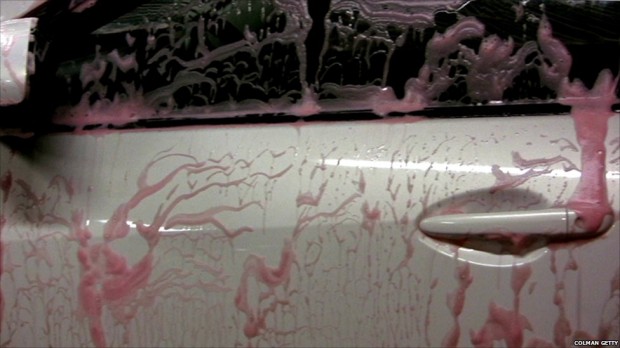
In Blessed Blessed Oblivion, Manna gained access to environments rarely seen by the female eye. The barbershop, gym, and mechanic’s garage in the film are all located in her hometown of East Jerusalem and serve as daily habitats for the work’s misogynistic protagonist: a young Palestinian. His pious recitations of martyr poems are followed swiftly by rants about less sacred, and more sexual, types of violence.
Manna’s lens focuses on the sculptural aspects of grooming of both bodies and cars: tools are prevalent here, from the shiny barber’s razors that slowly sweep across chins (the violence feels latent) to the bright yellow screwdrivers in the auto shop. But despite the careful maintenance of the cars, one never sees any of the men actually driving them. The film thus captures the apathetic standstill of everyday life under occupation.
Manna lives and works in Jerusalem, and Los Angeles. Her account of the styles, language, and values of the protagonist and his friends is universal and specific; the film is a portrayal of men acting out their common identity (as in The Sopranos, you have the tracksuits, the disdain for education, and the allegiance to an old code of honor) and at the same time an unflattering yet tender report from a particular zone of political conflict.
-from a review published in Artforum, 07.09.10, by Johanne Nordby Wernø
Curated by Elisabeth Subrin

